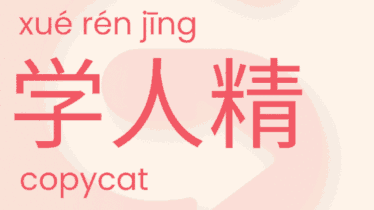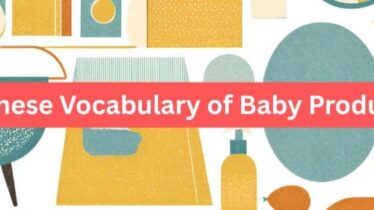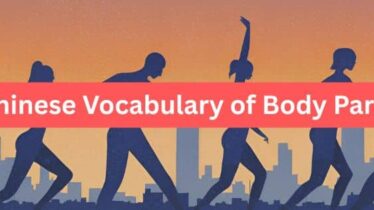The Ultimate Guide to 100 Essential Chinese Words and Phrases for Beginners
Learning Chinese can seem like a daunting task. With unfamiliar characters, tones and pronunciation, it’s easy to feel overwhelmed as a beginner. However, just learning 100 basic words and phrases can give you a solid foundation to start having simple conversations and grow your Chinese vocabulary.
In this comprehensive guide, we’ll cover fundamental Chinese vocabulary across common topics like greetings, introductions, directions, shopping, dining, transportation, emergencies and more. With pinyin romanization and characters provided for all words and phrases, this is the perfect resource to boost your basic Chinese language skills.
Greetings and Introductions
Greetings are essential to basic communication in any language. Here are some of the most common Chinese greeting words and introductory phrases:
- Nǐ hǎo (你好) – Hello
- Zài jiàn (再见) – Goodbye
- Wǎn shàng hǎo (晚上好) – Good evening
- Zǎo shàng hǎo (早上好) – Good morning
- Xiè xiè (谢谢) – Thank you
- Bú kèqì (不客气) – You’re welcome
- Duì bu qǐ (对不起) – Sorry
- Méi guānxi (没关系) – It’s okay
- Wǒ jiào… (我叫…) – My name is…
- Nǐ jiào shénme míngzì? (你叫什么名字?) – What is your name?
- Hěn gāoxìng rènshi nǐ (很高兴认识你) – Nice to meet you
When meeting someone for the first time in Chinese culture, it’s polite to address them by their surname followed by lǎoshī (老师), xiānsheng (先生) or nǚshì (女士) meaning teacher, mister or miss/madam.
Directions and Locations
Asking for directions and understanding location words is vital for getting around in China. Here are some of the most useful Chinese words and phrases for directions:
- Zuǒbiān (左边) – Left
- Yòubiān (右边) – Right
- Qiánmiàn (前面) – Front
- Hòumiàn (后面) – Behind
- Shàngmiàn (上面) – Above/Upstairs
- Xiàmiàn (下面) – Below/Downstairs
- Nǎlǐ (哪里) – Where
- Duō yuǎn? (多远?) – How far?
- Yídòng (移动) – Move
- Guòmǎ (过马路) – Cross the street
- Dào…de fāngxiàng (到…的方向) – Direction to…
- Qǐng wèn…zài nǎlǐ? (请问…在哪里?) – Excuse me, where is …?
Knowing the words for common locations and places is also very useful:
- Fàndiàn (饭店) – Restaurant
- Bàngōngshì (办公室) – Office
- BùMen(部门) – Department
- Chēzhàn (车站) – Train station
- Gōngyuán (公园) – Park
- Bǎo Wu guǎn (博物馆) – Museum
- Shāngdiàn (商店) – Store/Shop
- Yínháng (银行) – Bank
- Yóujú (邮局) – Post office
Shopping and Money
When shopping in China, knowing simple Chinese phrases can help you ask about prices, sizes and more. Here are some handy shopping-related words and questions:
- Duōshao qián? (多少钱?) – How much is this?
- Tài guì le (太贵了) – Too expensive
- Piányi yīdiǎn (便宜一点) – Cheaper one please
- Nǐ kěyǐ suàn yīxià ma? (你可以算一下吗?) – Can you calculate the price?
- Wǒ kěyǐ kàn yīxià ma? (我可以看一下吗?) – May I take a look?
- Mǎi (买) – Buy
- Lìng (零) – Zero
- Yī (一) – One
- Èr (二) – Two
- Sān (三) – Three
- Sì (四) – Four
- Wǔ (五) – Five
- Liù (六) – Six
- Qī (七) – Seven
- Bā (八) – Eight
- Jiǔ (九) – Nine
- Shí (十) – Ten
- Bǐ (比) – Compare
- Piányi (便宜) – Cheap
- Guì (贵) – Expensive
- Duōshao (多少) – How much
- Tài (太) – Too
It’s also important to know key Chinese question words to ask about products and prices:
- Shénme (什么) – What
- Nǎ (哪) – Which
- Nǎ ge (哪个) – Which one
- Duōshao (多少) – How much/How many
- Duōdà (多大) – What size
For counting money, here are some key Chinese phrases and characters:
- Qián (钱) – Money
- Máo (毛) – Chinese cents
- Yī kuài qián (一块钱) – One yuan/RMB
- Wǔ kuài qián (五块钱) – Five yuan
- Yībǎi kuài (一百块) – One hundred yuan
- Èr bǎi kuài (二百块) – Two hundred yuan
- Qiān (千) – Thousand
- Wàn (万) – Ten thousand
Transportation and Directions
Navigating China’s extensive public transportation network starts with knowing these essential words and phrases:
- Chē (车) – Car
- Gōnggòng qìchē (公共汽车) – Bus
- Dìtiě (地铁) – Subway
- ChuZuchē (出租车) – Taxi
- Jiāotōng shī Gu(交通事故) – Traffic
- HóngDeng (红灯) – Red light
- LǜDeng(绿灯) – Green light
- Zhǎn (站) – Station
- Tíngchēchǎng (停车场) – Parking lot
- Qù (去) – To go
- Dào (到) – Arrive
- Zǒu (走) – Walk
- Pǎo (跑) – Run
- Tīng (停) – Stop
- Zhuǎn (转) – Turn
- Zuǒbiān zhuǎn (左边转) – Turn left
- Yòubiān zhuǎn (右边转) – Turn right
- Zǒngzhàn (总站) – Last stop
Useful travel verbs include:
- Qù (去) – To go
- Lái (来) – To come
- Huí (回) – To return
- Dǎ (打) – To take (transport)
Knowing how to ask basic questions is invaluable when traveling in China:
- Zhè shì nǎge zhàn? (这是哪个站?) – What stop is this?
- Duō cháng shíjiān? (多长时间?) – How long?
- Duōshao qián? (多少钱?) – How much is the fare?
- Míngtiān de piào hái yǒu ma? (明天的票还有吗?) – Are there tickets available tomorrow?
- Qù nǎge zhàn? (去哪个站?) – Which stop?
- Zhè shì xiàng de chē ma? (这是 向的车吗?) – Is this the train to __?
Dining Out
Dining at Chinese restaurants starts with knowing menu vocabulary and how to order:
- Cāntīng (餐厅) – Restaurant
- Chīfàndiàn (吃饭店) – Chinese restaurant
- Càidān (菜单) – Menu
- Fùwùyuán (服务员) – Waiter/Waitress
- Kèfáng (客房) – Table for customer
- Wèishēngjiān (卫生间) – Restroom
- Kāfēi (咖啡) – Coffee
- Chá (茶) – Tea
- Shuǐ (水) – Water
- Píjiǔ (啤酒) – Beer
- Jiǔ (酒) – Alcohol/Wine
- Qǐng gěi wǒ lái yī bēi… (请给我来一杯…) – One cup of…please
- Qǐng gěi wǒ lái yī pán… (请给我来一盘….) – One plate of …please
- Qǐng suàn zhang (请算帐) – Check please
For ordering dishes, key food vocabulary includes:
- Miàntiáo (面条) – Noodles
- Fàn (饭) – Rice
- Niúròu (牛肉) – Beef
- Jīròu (鸡肉) – Chicken
- Yú (鱼) – Fish
- Jiǎozi (饺子) – Dumplings
- Tāng (汤) – Soup
- Shālā (沙拉) – Salad
Useful phrases for ordering and discussing food:
- Wǒ yào… (我要…) – I would like…
- Qǐng zuò wǒ yī fèn… (请做我一份…) – I would like one order of…
- Nǐ juéde zěnmeyàng? (你觉得怎么样?) – What do you think?
- Hěn hào chī (很好吃) – Very delicious
- Bù hào chī (不好吃) – Not delicious
- Wèishéme bù hào chī? (为什么不好吃?) – Why doesn’t it taste good?
- Tài là de/Tài kě de (太辣的/太苦的) – Too spicy/Too bitter
- Hái kěyǐ (还可以) – Not bad
Emergencies
Despite your best efforts, emergencies can still happen when traveling. Here are some of the most essential Chinese words and phrases to use in urgent situations:
- Jiùhù chē (救护车) – Ambulance
- Bing chuáng (病床) – Hospital bed
- Yīshēng (医生) – Doctor
- QiangJiu shì (抢救室) – Emergency room
- Wèixiǎn (危险) – Danger
- Jiùmìng (救命) – Help!
- Shāle (伤了) – Injured
- Zhòngshāng (重伤) – Seriously injured
- Bùshùfú (不舒服) – Uncomfortable
- Tòu téng (头疼) – Headache
- Fǎshāo (发烧) – Fever
- LiuXué (流血) – Bleeding
- EXin (恶心) – Nausea
- Ānquán dài (安全带) – Seatbelt
Other helpful emergency phrases:
- Wǒ xūyào yīshēng (我需要医生) – I need a doctor
- Qǐng bāng wǒ (请帮我) – Please help me
- Wǒ méi shì (我没事) – I’m fine
- Bié dānxīn (别担心) – Don’t worry
- Wǒ yào jìn yīyuàn (我要进医院) – I need to go to the hospital
- Qǐng jiào jǐngchá (请叫警察) – Please call the police
- Bǎ wǒ sòng dào… (把我送到….) – Take me to…
Time and Dates
Telling time and dates in Chinese uses different vocabulary than English. Here are the key words and phrases to know:
- Xiànzài jǐ diǎn? (现在几点?) – What time is it now?
- Míngtiān (明天) – Tomorrow
- Zuótiān (昨天) – Yesterday
- Qīng (请) – Please
- Xièxiè (谢谢) – Thank you
- Bú kèqi (不客气) – You’re welcome
- Duìbùqǐ (对不起) – Sorry, excuse me
To ask or express the time:
- Jǐ diǎn zhōng? (几点钟?) – What time?
- __ diǎn zhōng (七点钟) – 7 o’clock
- Bàn (半) – Half
- Sān diǎn bàn (三点半) – Half past 3
The days of the week in Chinese are:
- Xīngqīyī (星期一) – Monday
- Xīngqī’èr (星期二) – Tuesday
- Xīngqīsān (星期三) – Wednesday
- Xīngqīsì (星期四) – Thursday
- Xīngqīwǔ (星期五) – Friday
- Xīngqīliù (星期六) – Saturday
- Xīngqītiān (星期天) – Sunday
The months in Chinese are:
- Yīyuè (一月) – January
- Èryuè (二月) – February
- Sānyuè (三月) – March
- Sìyuè (四月) – April
- Wǔyuè (五月) – May
- Liùyuè (六月) – June
- Qīyuè (七月) – July
- Bāyuè (八月) – August
- Jiǔyué (九月) – September
- Shíyuè (十月) – October
- Shíyīyuè (十一月) – November
- Shí’èryuè (十二月) – December
Colors
Knowing basic color words in Chinese is useful for describing objects and clothes when shopping:
- Báisè de (白色的) – White
- Hēisè de (黑色的) – Black
- Fěnsè de (粉色的) – Pink
- Hóngsè de (红色的) – Red
- Chìsè de (橙色的) – Orange
- Huángsè de (黄色的) – Yellow
- Lǜsè de (绿色的) – Green
- Lán sè de (蓝色的) – Blue
- Zǐsè de (紫色的) – Purple
- Qīngsè de (青色的) – Cyan/Teal
- Húisè de (灰色的) – Gray
- Fěnhóngsè de (粉红色的) – Pink
- Hēisè de (黑色的) – Black
Words for patterns and textures:
- Diān (点) – Dotted
- Tiáo (条) – Striped
- Gezi (格子) – Checkered
- Huā (花) – Floral
- Dàocǎo (刀草) – Plaid
- Máo (毛) – Furry, hairy
- Mó (磨) – Polished, glossy
Describing Things
Use these words and phrases when describing objects and people:
- Dà (大) – Big
- Xiǎo (小) – Small
- Gāo (高) – Tall
- Āi (矮) – Short
- Shòu (瘦) – Thin
- Pàng (胖) – Fat
- Zhēn (真) – Real
- Jiǎ (假) – Fake
- Kě’ài (可爱) – Cute
- Měilì (美丽) – Beautiful
- Chǒu (丑) – Ugly
- Lā (啦) – Old
- Xīn (新) – New
- Ruǎn (软) – Soft
- Yìng (硬) – Hard
- Rè (热) – Hot
- Lěng (冷) – Cold
- Tián (甜) – Sweet
- Ku (苦) – Bitter
- Suān (酸) – Sour
- Niánqīng (年轻) – Young
- Lǎo (老) – Old
Useful phrases:
- Zhè shì shénme? (这是什么?) – What is this?
- Nǐ juéde zěnme yàng? (你觉得怎么样?) – What do you think?
- Wǒ juéde… (我觉得….) – I think…
- Bǐjiào – Relatively
- Tài duō le (太多了) – Too much
- Bú cuò (不错) – Not bad
- Hěn hǎo (很好) – Very good
- Tài hǎo le (太好了) – So good
Conclusion
Learning basic Chinese vocabulary across a range of common topics such as greetings, directions, transportation, shopping, dining, emergencies and more will give you a solid foundation for simple conversation. Focus on the 100 essential words and phrases here as a starting point. Listen and practice saying them aloud. You’ll be surprised at how quickly you can pick up and apply this basic Chinese vocabulary in everyday situations.
related reading: Is Learning Chinese Worth It? An In-Depth Look at the Pros and Cons



